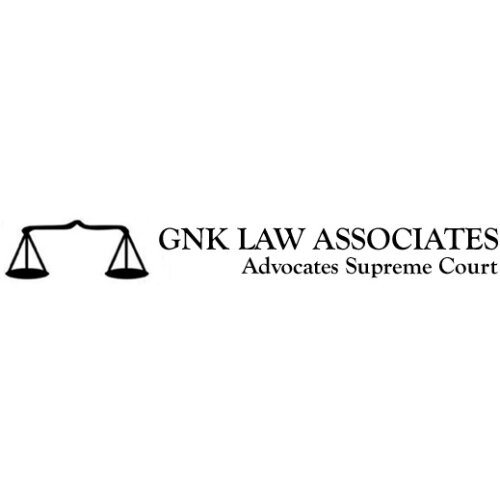Best Tax Increment Financing Lawyers in Delhi
Share your needs with us, get contacted by law firms.
Free. Takes 2 min.
List of the best lawyers in Delhi, India
About Tax Increment Financing Law in Delhi, India
Tax Increment Financing (TIF) is an innovative financing method used by municipal governments to encourage economic development in specific areas. In Delhi, India, TIF is used as a tool to stimulate investment in underdeveloped regions by redirecting the future growth in property taxes generated by new development. Through TIF, funds are allocated for public infrastructure projects, improving transportation, and revamping urban spaces. The basic premise is to capitalize on the anticipated rise in property values resulting from the developments initiated due to TIF.
Why You May Need a Lawyer
Engaging with Tax Increment Financing involves navigating complex legal and financial landscapes, which can often be daunting without expert guidance. Common situations necessitating legal help include:
- Understanding the eligibility criteria and procedural requirements for applying for TIF.
- Negotiating terms and conditions with government bodies or investors.
- Dealing with disputes or compliance issues related to TIF agreements.
- Assessing potential legal liabilities or tax implications associated with TIF projects.
- Advising businesses on maximizing benefits from the TIF while adhering to regulations.
Local Laws Overview
The implementation of Tax Increment Financing in Delhi is governed by a set of local regulations which aim to facilitate planned urban growth and redevelopment. Key aspects of these laws include:
- Laws that define the specific areas or zones eligible for TIF to ensure targeted growth.
- Regulations outlining the permissible use of funds obtained through TIF for infrastructural improvements.
- Criteria for public-private partnerships under the TIF framework to ensure effective collaboration.
- Requirements for transparency and regular audits to maintain accountability in TIF projects.
- Procedures for reporting and remitting incremental tax revenues to ensure proper allocation.
Frequently Asked Questions
What is the primary objective of Tax Increment Financing?
The primary objective of TIF is to finance public infrastructure projects that lead to economic development in designated areas by utilizing the expected future increase in property tax revenues resulting from those developments.
How is a TIF district established in Delhi?
A TIF district is established by municipal authorities who identify an area that would benefit from redevelopment. This involves conducting studies and securing approvals from relevant government bodies.
What types of projects can TIF funds be used for?
TIF funds are typically used for public infrastructure projects such as road improvements, utilities upgrades, pedestrian walkways, and other urban development initiatives.
Who manages the TIF funds?
In Delhi, TIF funds are usually managed by local government agencies that oversee the allocation and disbursement of funds according to the established TIF plan.
Can TIF be used for private development projects?
While TIF primarily focuses on public benefits, it can support private development projects that align with public goals such as reducing blight and enhancing local economic activity.
Is participation in TIF binding?
Participation in TIF is generally voluntary, especially for developers and investors. However, once engaged, compliance with the agreed-upon terms is mandatory.
How does TIF impact local communities?
TIF can lead to improved infrastructure, increased employment opportunities, and enhanced urban environments, contributing positively to local communities.
What are the risks associated with TIF?
Risks include the potential for over-reliance on projected future tax revenues, which may fluctuate, leading to funding shortfalls for committed projects.
How can developers benefit from TIF?
Developers can benefit from TIF through reduced upfront infrastructure costs and improved area desirability, potentially leading to higher property values.
What are the criticisms of TIF?
Critics argue that TIF can divert funds away from essential public services, and without proper oversight, it might prioritize projects that do not sufficiently benefit the community.
Additional Resources
For more information on TIF in Delhi, consider reaching out to the following resources:
- Delhi Development Authority (DDA) - for regulatory oversight and district planning.
- Ministry of Housing and Urban Affairs - for policies related to urban development.
- Local Municipal Corporations - to understand specific municipal rules and guidelines.
- Legal experts specializing in real estate and taxation law - for personalized legal advice.
Next Steps
If you find yourself in need of legal assistance with Tax Increment Financing in Delhi, consider following these steps:
- Research: Understand the basics of TIF and its implications for your project.
- Consult a Lawyer: Seek professional legal advice to navigate the complexities of TIF law.
- Engage with Authorities: Reach out to local government offices for specific requirements and procedures.
- Document Preparation: Make sure all relevant documentation and proposals are in order.
- Monitor Compliance: Ensure ongoing projects adhere to all legal and regulatory standards.
Lawzana helps you find the best lawyers and law firms in Delhi through a curated and pre-screened list of qualified legal professionals. Our platform offers rankings and detailed profiles of attorneys and law firms, allowing you to compare based on practice areas, including Tax Increment Financing, experience, and client feedback.
Each profile includes a description of the firm's areas of practice, client reviews, team members and partners, year of establishment, spoken languages, office locations, contact information, social media presence, and any published articles or resources. Most firms on our platform speak English and are experienced in both local and international legal matters.
Get a quote from top-rated law firms in Delhi, India — quickly, securely, and without unnecessary hassle.
Disclaimer:
The information provided on this page is for general informational purposes only and does not constitute legal advice. While we strive to ensure the accuracy and relevance of the content, legal information may change over time, and interpretations of the law can vary. You should always consult with a qualified legal professional for advice specific to your situation.
We disclaim all liability for actions taken or not taken based on the content of this page. If you believe any information is incorrect or outdated, please contact us, and we will review and update it where appropriate.













